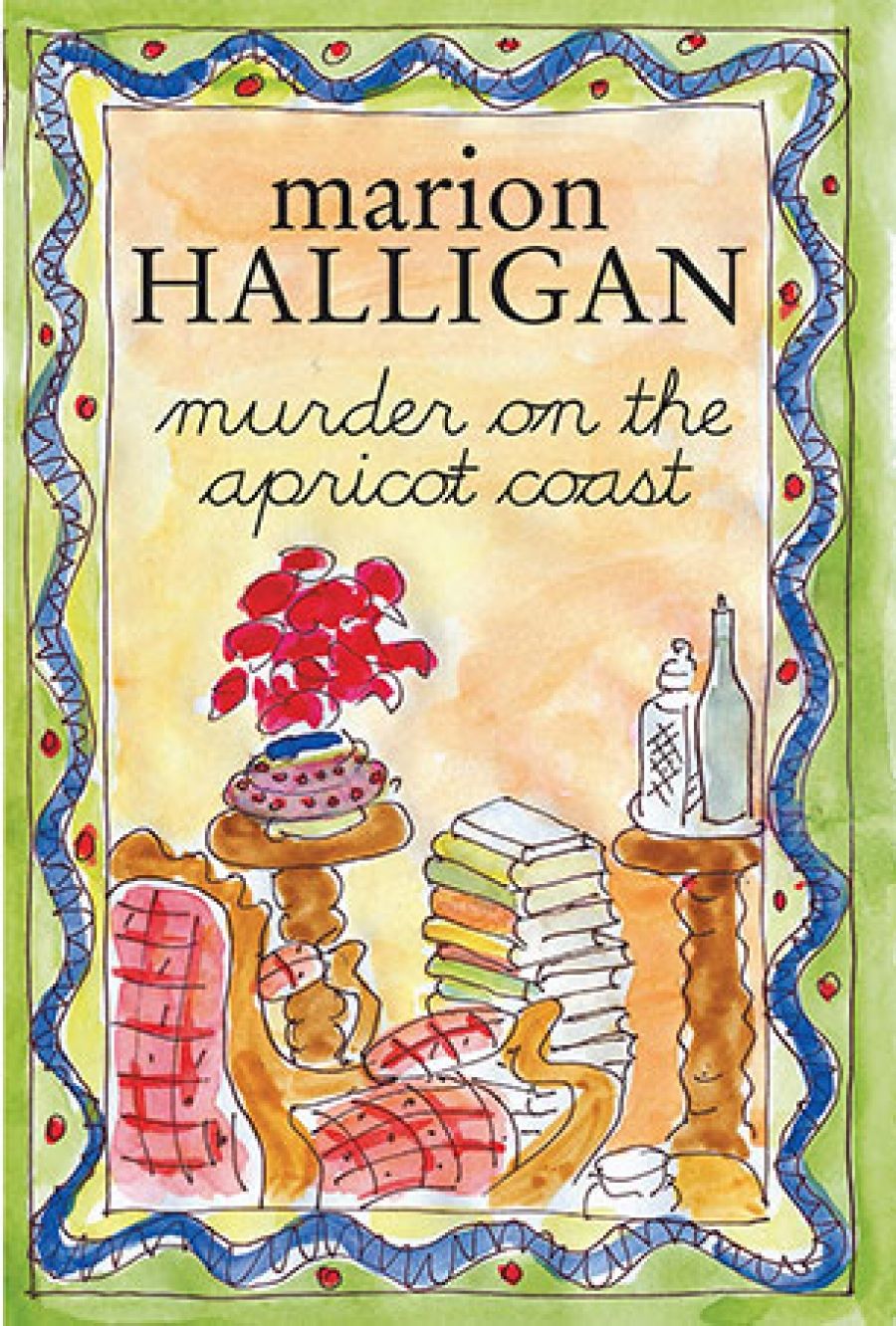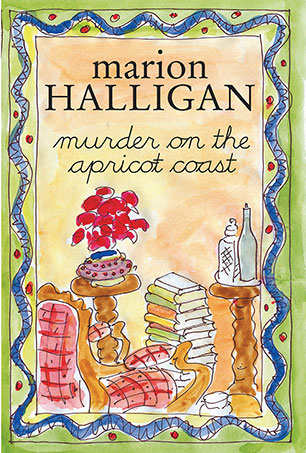
- Free Article: No
- Contents Category: Fiction
- Custom Article Title: Explain away
- Review Article: Yes
- Article Title: Explain away
- Online Only: No
- Custom Highlight Text:
Marion Halligan is a long-established fiction writer with an impressive list of publications. Even readers with only partial familiarity will recall that many of her novels have been informed by autobiographical material reflecting personal leanings and experiences, particularly her fondness for France, food and cooking, and the profound grief she sustained when her husband died. But in 2006 she changed direction, plunging into crime fiction with The Apricot Colonel, to which she has now produced a sequel. Both are written in the first person by a narrator called Cassandra Travers, a book editor.
- Book 1 Title: Murder on the Apricot Coast
- Book 1 Biblio: Allen & Unwin, $21.95 pb, 264 pp
- Book 1 Cover Small (400 x 600):

- Book 1 Cover (800 x 1200):

This is not entirely surprising. Authors are regularly instructed to write about what they know, a lot of which is the world of books; their characters frequently work in publishing or do research into other writers, such as, famously, Henry James. Not only have Colm Toíbín and David Lodge recently published novels about James, but Nick Guest, the fictional hero of Alan Hollinghurst’s 2004 Booker prize-winner, The Line of Beauty, is also ‘working on’ him, as is the heroine of A.N. Wilson’s novel A Jealous Ghost (2005). There is even a glancing reference to the Master on page seventy-three of Halligan’s second Apricot book. More significantly, the plots of both are triggered by the revelation of a loaded manuscript written by the murder victim.
Cassandra is then a professional editor and one of these bookish authors, as well as the new wife of the eponymous colonel; but the novels she writes fall into a more popular genre than those she is accustomed to editing or reading. In Murder on the Apricot Coast, she is anxious to show that her literary credentials have not been compromised by her descent into thriller mode, or her own star role in its true romance sub-plot. Reader, she begins, I married him – a link, as Cassandra does not fail to explain, to Jane Eyre, as well as to the dashing Colonel.
Cassandra is always either explaining or explaining away, with the result that the single voice ventriloquating both the besotted heroine and the highbrow editor emanates from a somewhat irritating narrator. Apricot Coast drools with arch references to the blissful marriage to Colonel Al: ‘I like cuddles in the night. Sometimes he spoons behind, sometimes I do. Sometimes we entwine ...’ This level of pillow talk does little for the plot or the reader, but presumably something for the narrator, given its frequency. Of a restaurant meal with the colonel, she gushes, ‘We were having a nice time reading the menu when a man at the next table leaned over and tapped Al: ‘“Are you two always this good together?” he asked.’ Halligan does smug very well, but apparently without realising that it is not an endearing trait.
While the artless Cassandra wants to disarm her non-literary readers with true confessions, she is aware that displays of professional know-how are endemic to her editorial alter ego; thus she frequently seeks to blunt their cutting edge with explications or disclaimers. When Al quotes the aphorism ‘All Cretans are liars’, she laboriously unravels the allusion for the benefit of us simple folk. Even the old chestnut ‘When did you stop beating your wife?’ is deconstructed (‘It seems to require an incriminating answer’, she spells out, not to the dinner guest, but to the thick reader). The situation is compounded rather than improved by the assurance that (even) she doesn’t know the name for that particular ‘trope’.
The expertise that lends Cassandra the know-all confidence of her editing mode tends to spill over into opinions so banal they make an art form of the obvious: ‘If you can’t be with a person and not talk to them a relationship can become fatiguing,’ she announces; or ‘I have this funny old-fashioned view that a book is about language as well as its subject matter’. Congratulations. But is it not the case that punctuation is a tool of language? Cassandra the opinionated editor savages the plethora of full stops and the ‘breathless flow’ in a manuscript she is working on, yet Cassandra the trendy author abolishes quotation marks (their absence rather reminding the reader of their usefulness) and writes of Al’s apricots: ‘There was a little pile of spotted fruit that he’d rejected for his purposes, and I ate one, it had an antique rich taste, not quite decadent but full of experience, worldly and somehow spiritual too, I bit into it and it seemed that one more mouthful and I would know all sorts of wonderful things ...’ Stream-of-consciousness writing without enough full stops is not unusual in the first-person novel, but this example engenders the very breathlessness that Cassandra has just denounced. It could be a sly joke, of course, but if so it’s a bit lost. Irony is not a great feature of either of her voices.
But let us turn (synecdochically?) to the whole rather than the parts of Cassandra’s follow-up novel. Light and easy to read it certainly is, with a plausible mystery and a good twist at the end. But the plot is precariously thin. The padding, as exemplified by a lecture on the history of asparagus, can become obvious, and having dropped the word ‘queasy’ on page 215, it is hardly a bombshell when, on the penultimate one, she announces her ‘surprise’ pregnancy. But there is an exciting scène de scandale, and some fun games of hunt-the-unnamed-celebrity, with clues pointing to John Howard, Richard Pratt, Kate Holden etc. The second Apricot book is an entertaining holiday read, and might be something more if Cassandra would just shut up for a moment. But then there wouldn’t be a book at all, would there?


Comments powered by CComment